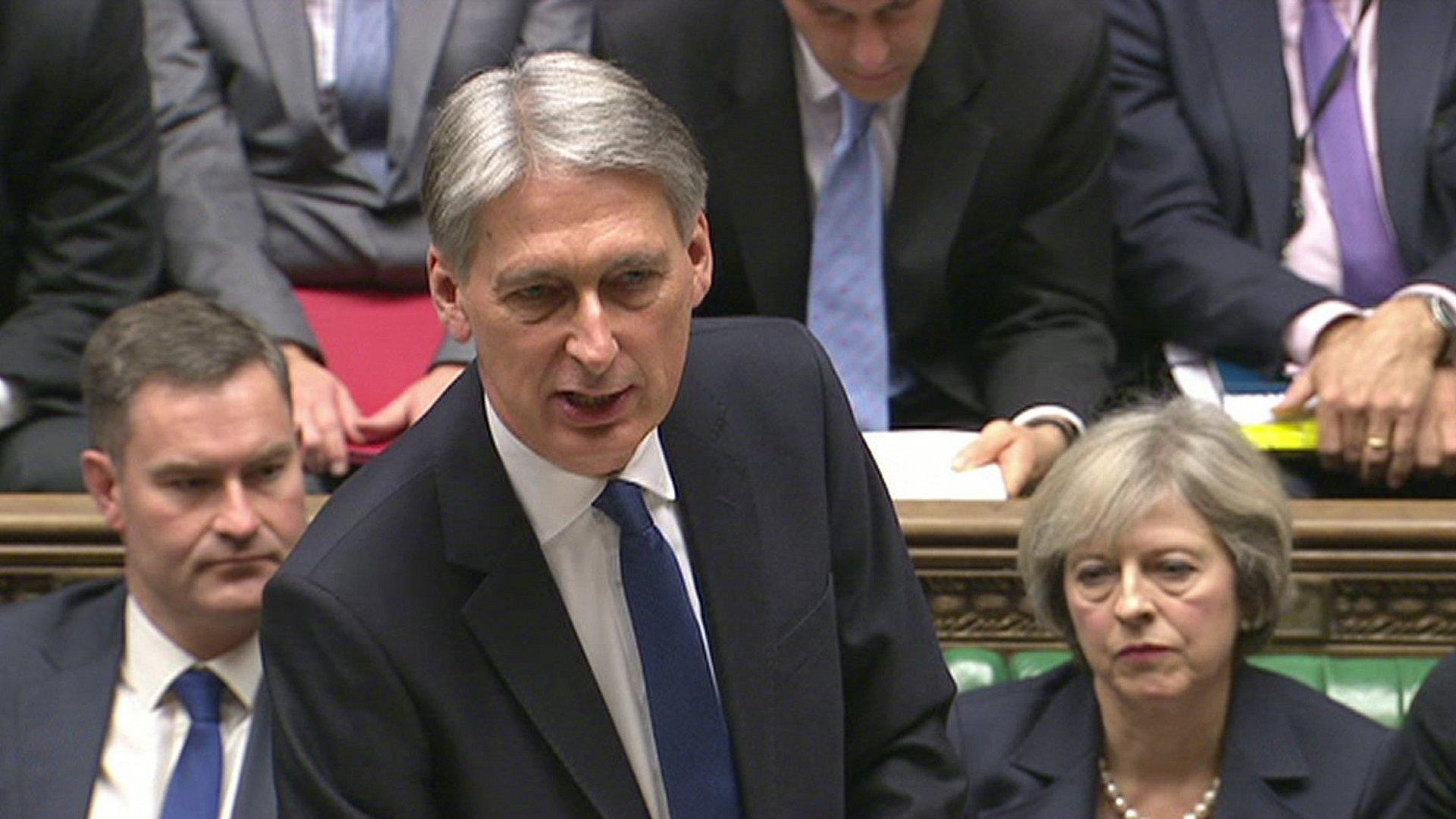Who is the real Philip Hammond?
- Published
Watch Nicholas Watt's in-depth profile of the man nicknamed SpreadSheet Phil
Chancellor Philip Hammond has delivered his Autumn Statement, setting out his economic vision. But what do we know about him as a man? BBC Newsnight's political editor has been speaking to some of his closest friends and colleagues.
For years Philip Hammond has been dubbed the ultimate boring accountant whose idea of fun is to spend his holidays poring over spreadsheets.
Well, he is certainly not an accountant.
And there is mixed evidence on the boring front. Hammond does - according to his former ministerial colleague Sir Peter Luff - infuriate his wife Susan by taking spreadsheets to the beach.
But friends dating back to Hammond's days at Shenfield High School in the 1970s recall a long-haired teenager who, with a twinkle in the eye, drove fellow sixth-formers to the pub for lunch.
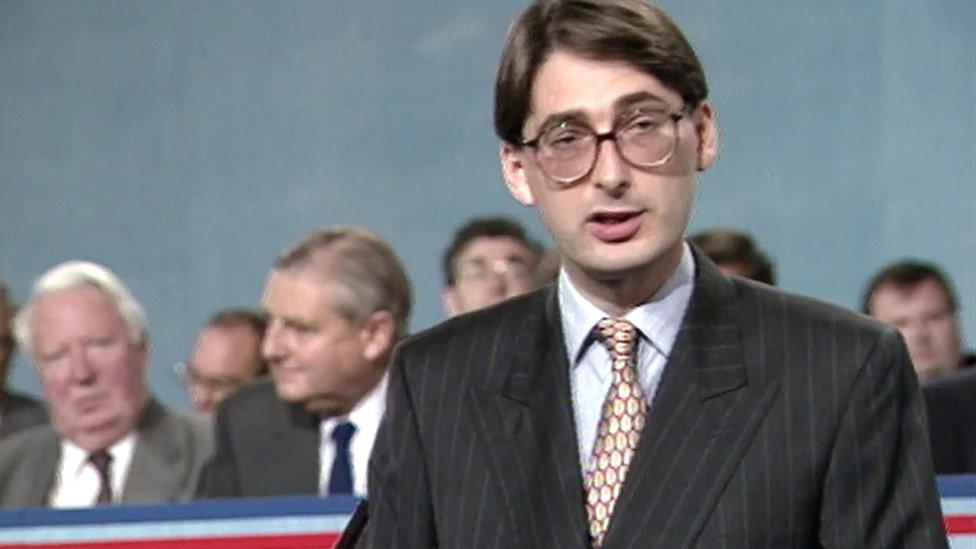
A young Philip Hammond at a Conservative conference
Nina Stratford, one of his pub lunch partners, told us something about Hammond that has probably never been said publicly before about a chancellor of the exchequer.
"I remember going round to his house once. We got hold of half a bottle of sherry and proceeded to drink it, and very randomly we ended up having a bit of a cheeky snog," she says. "Who'd have thought that Philip Hammond was such a good kisser?"
It was the era of 1970s Glam Rock and Hammond launched a highly successful career as an entrepreneur by running discos. After Oxford he made a mint in residential and commercial building in the 1980s and 1990s.
The Hammond fortune, which gave him the keys to a smart Jaguar car, allowed him to fulfil the Michael Heseltine criterion to ensure success in politics.
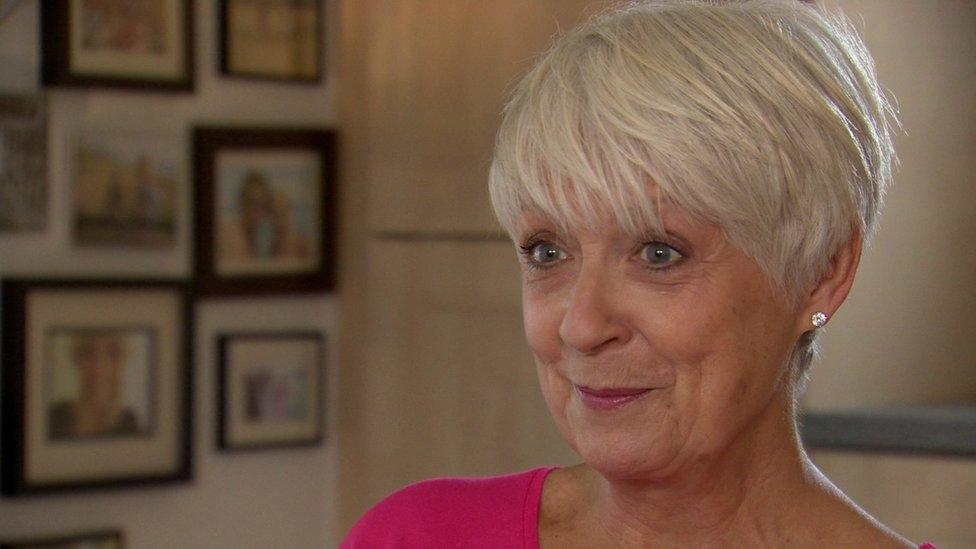
Nina Stratford: "Who'd have thought that Philip Hammond was such a good kisser?"
He entered Parliament at the relatively late age of 41 in 1997 as a millionaire, ensuring he would not be beholden to anyone.
And now, two decades later, Philip Hammond has achieved his dream job in circumstances he could never have imagined.
He has taken charge of the UK economy at what he regards as a potentially perilous moment after the Brexit referendum.
In a series of interviews with friends from his school days in Essex and from his earliest in politics a quarter of a century ago I have been introduced to the two sides of Philip Hammond.
First there is an unsurprising figure: "Spreadsheet Phil" who devoured the Daily Telegraph at school and whose hour may now have come at this tricky moment for the public finances.
And then there is Phil, the resourceful entrepreneur and confident charmer who served Bacardi to his mates in his Shenfield bedroom which was out of bounds to his parents.
The chancellor will need to draw on both these sides of his personality as he embarks on two historic challenges which may dwarf even those faced by his two immediate predecessors who lived through the global financial crash and its aftermath.
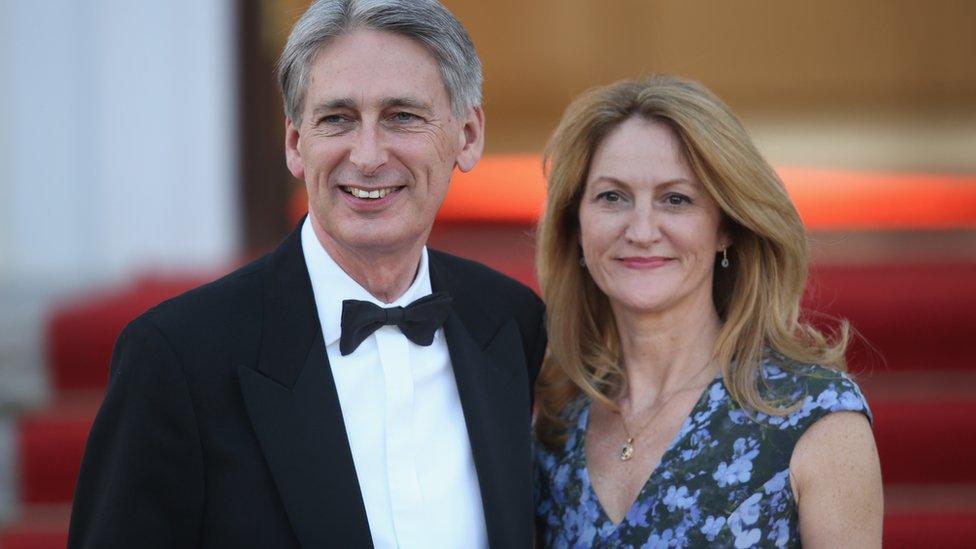
Philip Hammond and his wife Susan Williams Walker
In the first place, Hammond believes he needs to prepare the economy for what he fears could be a bumpy ride once the Brexit negotiations are formally launched in the spring.
And then there is the other challenge he is pursuing on his own terms - ensuring that Britain achieves a soft landing as it leaves the EU.
Former school friends painted a picture of a highly intelligent teenager who had the confidence to challenge, in a friendly way, his left-wing history teacher.
Fellow-pupil Richard Madeley, the television presenter, recalls: "He would always finish his work in class ahead of everybody else. He was very very bright.
"And then he put his big boots on the desk and start reading the Telegraph and swapping political dialogue with our history teacher who was a Guardian reader.
"And usually towards the end of the class they would swap papers and then they would sort of score jolly points off each other making political points."
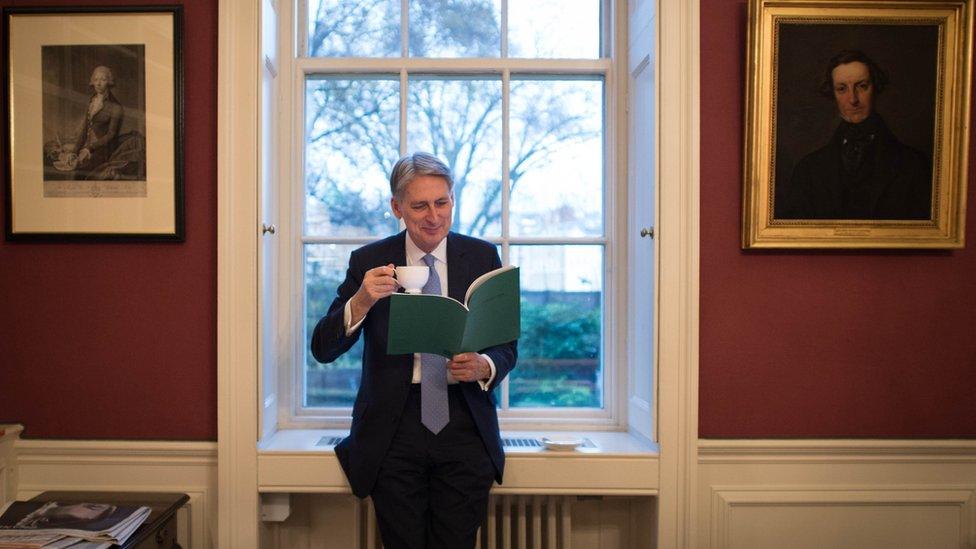
It's Autumn Statement time 2016
Wind forward three decades and Philip Hammond now finds himself one of the central figures as a new political order takes shape after the Brexit vote.
Passing acquaintances when at Oxford, Hammond and Theresa May enjoy a constructive, though not especially close, working relationship.
But there is irritation in the Treasury at briefings that he is resistant to her mission to champion the so-called JAMs, people who are Just About Managing.
He sees the need to target help on people struggling, but says that his main priority is to stabilise the economy after the Brexit vote.
This will mean abandoning George Osborne's plan to achieve an overall budget surplus by 2020.
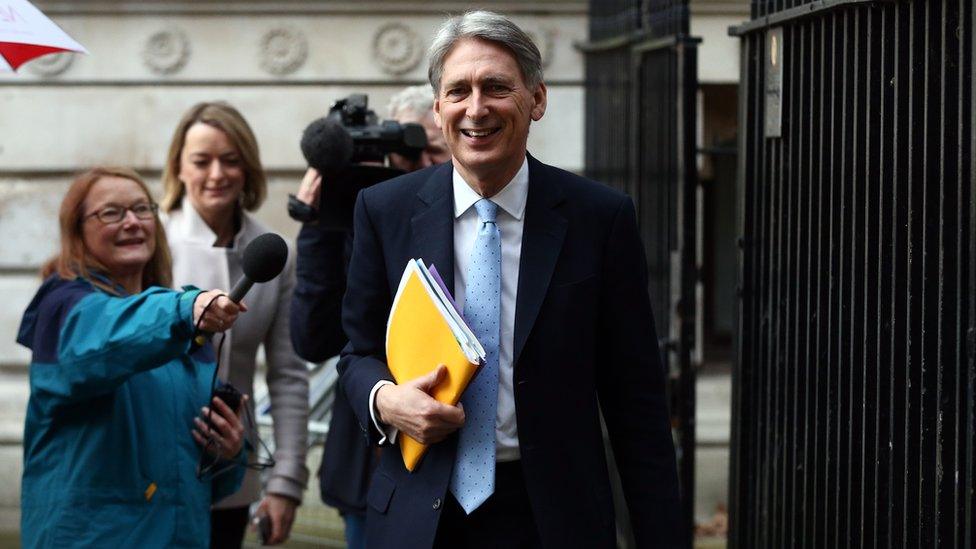
Mr Hammond says his main priority is to stabilise the economy
The chancellor's old political friend, former transport minister Stephen Hammond, says his namesake wants to make clear he is not going soft on the deficit.
He said: "Intellectually the framework remains the same - that we intend to achieve a fiscal surplus within the life of the next parliament."
Stephen Hammond also gave me an insight into Hammond's thinking on the EU.
The chancellor is so concerned about business uncertainty he believes the UK should negotiate a transitional deal with the EU to cover future trading relations at the same time as the Brexit talks.
Theresa May appeared to float this idea on Tuesday, only for her aides to back away.
Stephen Hammond told me: "Leaving in two years' time without a deal would be catastrophic for this country.
"And I think it is clear that one of the things Philip is increasingly coming to realise is that we may need to put in place transitional arrangements so that negotiations don't have to stop in two years' time - it may well be in our national interest to continue those negotiations for some time to get the best deal for Britain."
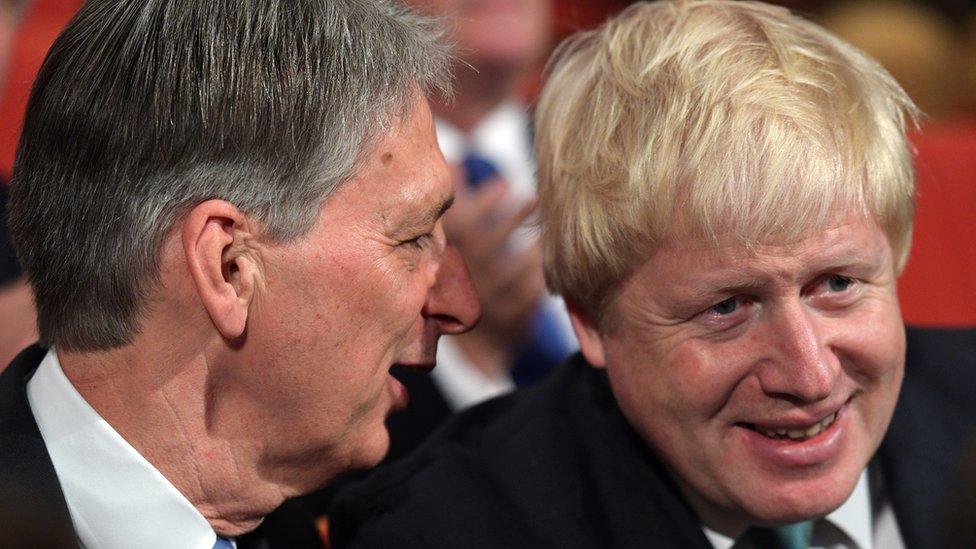
Philip Hammond with Boris Johnson who supported the Leave campaign
In private, friends told me, Mr Hammond is unimpressed by what he regards as the excessively optimistic claims of the Brexiteers Boris Johnson and Liam Fox.
But he is re-establishing an alliance with the third Brexiteer, his one time boss David Davis.
Friends say Mr Hammond regards the Brexit secretary as a grown-up who is immersing himself in the gritty detail of his job.
Britain is having its first proper introduction to the two Philip Hammonds. Spreadsheet Philip may be the man for the moment as the public finances enter a bumpy phase.
But Phil, the confident charmer, will need all his political wiles to survive the choppy Brexit waters ahead.
Nicholas Watt, external is political editor for BBC Newsnight. You can watch his report here
- Published23 November 2016
